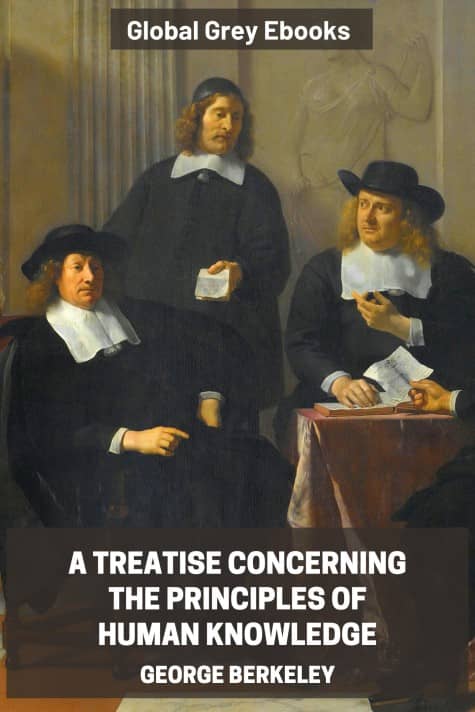A Treatise Concerning the Principles of Human Knowledge
George Berkeley

Available to download for free in PDF, epub, and Kindle (mobi and AZW3) ebook formats. Or read online.
Skip straight to downloads.
Description
A Treatise Concerning the Principles of Human Knowledge, also known as the Principles of Human Knowledge or simply the Treatise, is a work written in 1710 by George Berkeley, an Irish Empiricist philosopher. The primary aim of this book is to challenge the assertions put forth by Berkeley's contemporary, John Locke, regarding the nature of human perception. While both Locke and Berkeley, like other Empiricist thinkers, agreed that we have experiences, regardless of the existence of material objects, Berkeley sought to demonstrate that the external world (the world that gives rise to the ideas within our minds) is exclusively composed of ideas. To support his argument, Berkeley proposed that 'Ideas can only resemble Ideas'. In other words, the mental ideas we possess can only resemble other ideas rather than material objects. Consequently, Berkeley contended that the external world is not made up of physical forms but rather consists entirely of ideas. According to Berkeley, this world obtains its logic and regularity from a separate force, which he ultimately identifies as God.
Part of the Encyclopaedia Britannica’s Great Books of the Western World set.
This book has 36,362 words, 51 pages in the PDF version, and was originally published in 1710.
Production notes: This ebook of A Treatise Concerning the Principles of Human Knowledge was published by Global Grey on the 12th August 2018, and updated on the 4th June 2023. The artwork used for the cover is 'The Regents of the Spinhuis and the Nieuwe Werkhuis in Amsterdam' by Karel Dujardin.
Download for ereaders (below donate buttons)
The donate buttons below are in British Pounds, click here if you would prefer to donate in USD, EUR, CAD, or AUD.
Donate with PayPal (yellow button) or Stripe (via Donorbox) (blue button)


